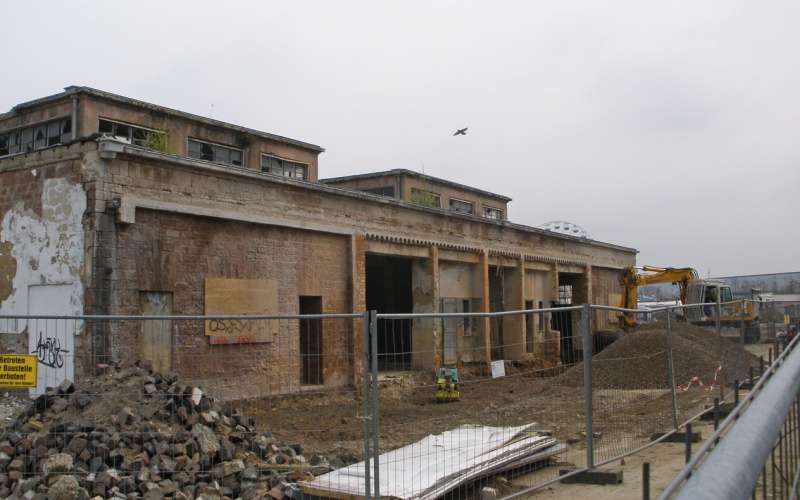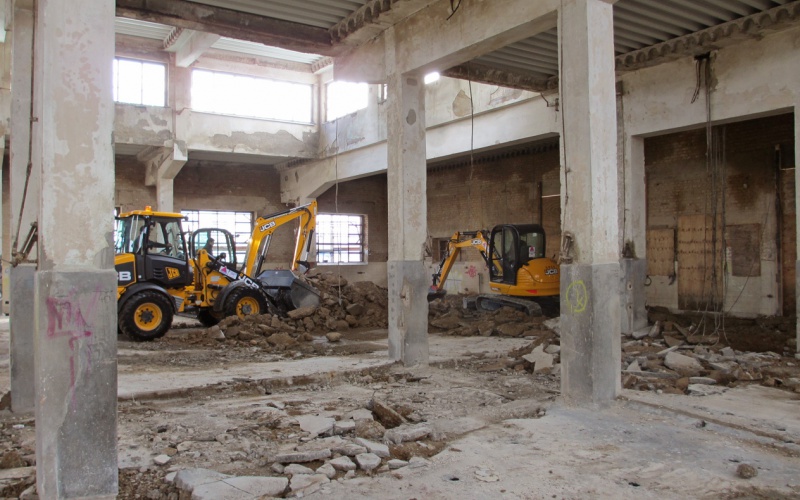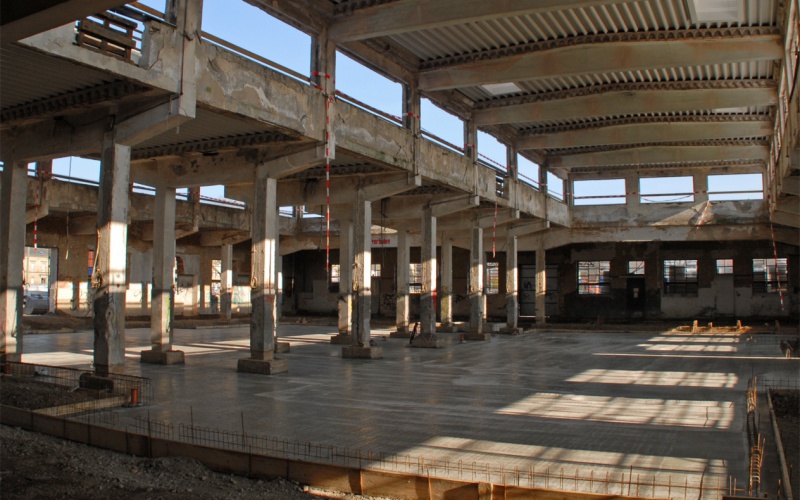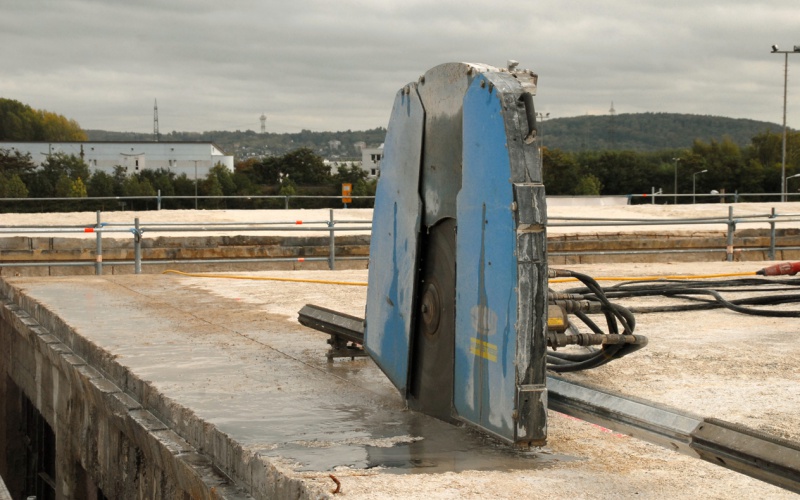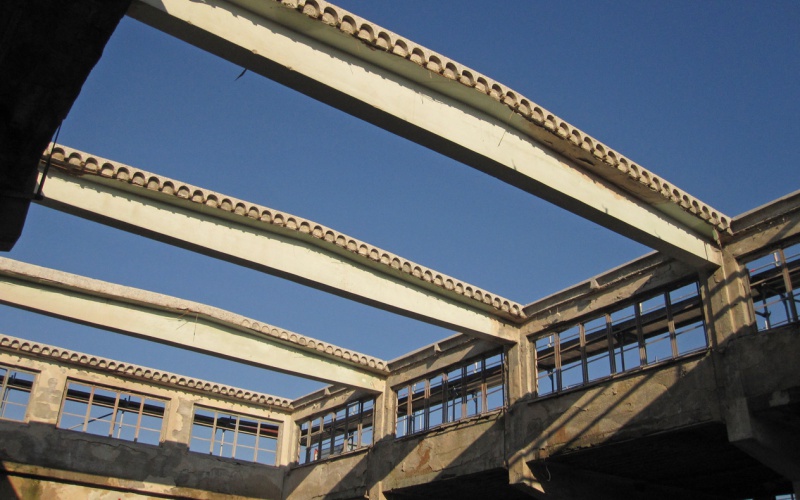Renovation
The first drafts for the renovation into a startup center were created in 2007. The plans were further developed in the following years, including the installation of a sample container on the outside area that was meant to convey an impression on how the units in the hall will look like. The need for a startup center for cultural and creative professionals was confirmed by the Fraunhofer ISI in 2010 as part of a potential analysis study. In order to comprehensively address the needs of potential users, a workshop was held in October 2010. This was attended by students from the various universities in Karlsruhe as well as from KIT. In 2011, the council finally decided to implement the container model.
The extensive renovation measures began that same year. It was thereby also important to preserve the historic buildings. The outer walls and concrete structure were still in good condition and only required partial renovation. The historical concrete honeycomb ceiling could not be preserved due to structural reasons and was replaced with a ceiling made of trapezoidal sheets. The windows were single glazed, destroyed, and partly walled up. In the course of the restructuring, the preserved historic window frames were renovated and reused for the new windows. In the west façade area, the walled up openings were revived and windows constructed in a design matching that of the historical models. The floor had sunk in some areas and, therefore, was dug up one meter in depth and redone. On the roof, there is a landscaped, partly walkable terrace.
The highlight of the renovation was the installation of the containers in the hall. They were first stacked outside the hall after being transported by ship from the port of Rotterdam to Karlsruhe. The containers were then cleaned and openings cut out where windows and doors would later be installed. A fork-lift truck was later used to place the containers in their intended positions inside the hall.
The startup center in the former Schweinemarkthalle was ceremoniously opened in April 2013 after almost one and a half years of reconstruction. The first entrepreneurs already had their containers by then. Currently, Perfekt Futur – which got its name through a naming competition – is home to more than 30 young companies, all venturing into their first steps in self-employment.

